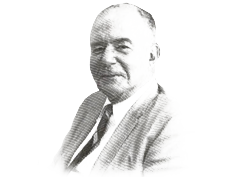James Evans, University of Chicago
Designing Diversity for Sustained Innovation
- 3:00 - 4:15pm
- Uris Hall G08
Abstract
The wisdom of crowds hinges on the independence and diversity of their members’ information and approach. Here I explore how the wisdom of scientific, technological, business, and civic crowds for sustained discovery, invention, and cooperation operate through a process of collective abduction wherein unexpected findings or conflicts stimulate innovators to forge new insights to make the surprising unsurprising. Drawing on tens of millions of research papers and patents across the life sciences, physical sciences and inventions, as also interactions between diverse collaborating groups, I show that surprising designs and discoveries are the best predictor of outsized success and that surprising advances systematically emerge across, rather than within researchers or teams; most commonly when innovators from one field surprisingly publish or share problem-solving results to an audience in a distant and diverse other. This relates to other research I summarize that shows how across innovators, teams and fields, connection and conformity is associated with reduced replication and impeded innovation. Using these principles, I simulate processes of knowledge search to demonstrate the relationship between crowded fields and constrained collective inferences, and I illustrate how inverting the traditional approach to artificial intelligence approach, to avoid rather than mimic human search, enables the design of diversity that systematically violates established field boundaries and is associated with marked success of predicted innovations. I conclude with a discussion of prospects and challenges in a connected age for sustainable innovation through the design and preservation of difference in science and society.
About the Speaker
James Evans is the Max Palevksy Professor of Sociology, Director of Knowledge Lab, and Founding Faculty Director of Computational Social Science at the University of Chicago and the Santa Fe Institute. Evans‘ research uses large-scale data, machine learning and generative models to understand how collectives think and what they know. This involves inquiry into the emergence of ideas, shared patterns of reasoning, and processes of attention, communication, agreement, and certainty. Thinking and knowing collectives like science, Wikipedia or the Web involve complex networks of diverse human and machine intelligences, collaborating and competing to achieve overlapping aims. Evans‘ work connects the interaction of these agents with the knowledge they produce and its value for themselves and the system.
Evans designs observatories for understanding that fuse data from text, images and other sensors with results from interactive crowd sourcing and online experiments. Much of Evans‘ work has investigated modern science and technology to identify collective biases, generate new leads taking these into account, and imagine alternative discovery regimes. He has identified R&D institutions that generate more and less novelty, precision, density and robustness. Evans also explores thinking and knowing in other domains ranging from political ideology and misinformation to popular culture. His work has been published in Nature, Science, PNAS, American Sociological Review, American Journal of Sociology and many other top social and computer science outlets.

